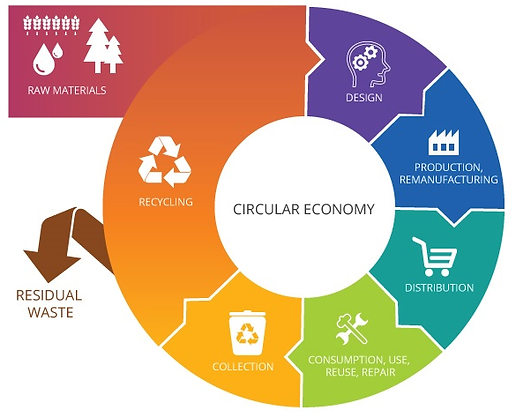Circular Economy
Consumption is increasing as the world population grows, and living standards rise. Sustainable growth requires the rational use of resources. This situation necessitates a change in economic models.
Also called the new generation economy, "The Circular Economy" aims to reduce the consumption of natural resources and raise the economic gain by prioritizing recycling and waste management practices.
Today's linear economy follows a line from raw materials to products, and from products to waste. Researches show that 90% of the raw materials used in manufacturing are wasted before the product leaves the factory, while 80% of the manufactured products complete their commercial lives within the first six months.
Since the situation is the opposite in a circular economy, productivity increases as resources can be reused through recycling. Every waste that is recycled means our children will have more resources and live a cleaner environment in the future. Achieving this requires a long-term strategy.
While our production and consumption habits are reshaping with the circular model, costs and environmental pollution are decreasing, and new job opportunities are created.

